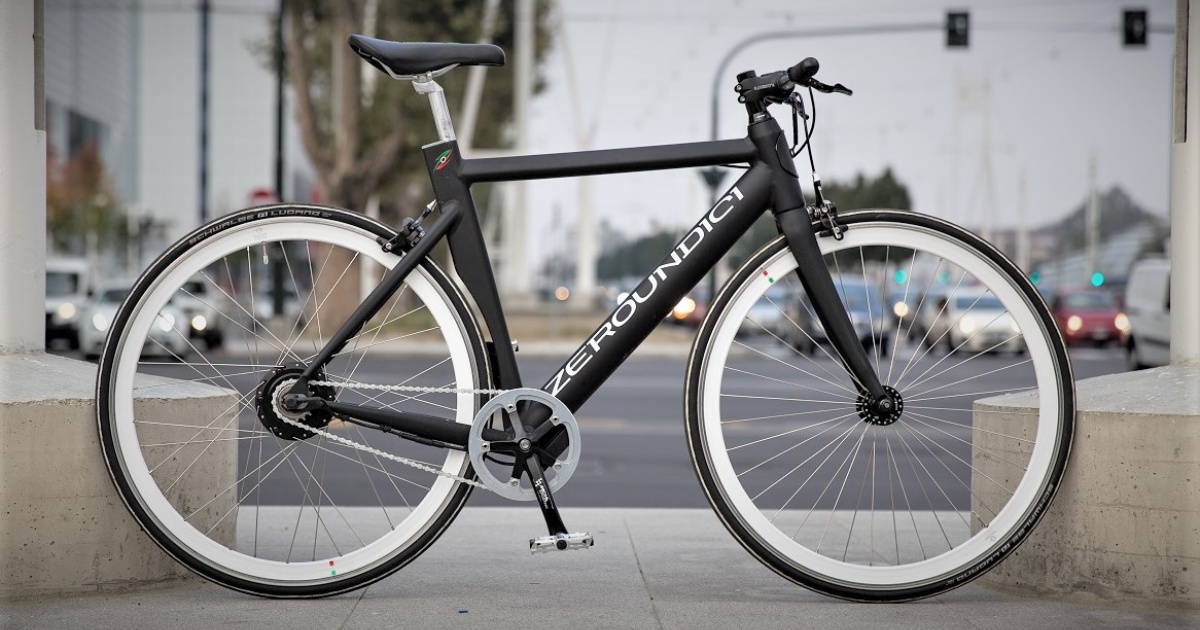There is time until July 25th, 2019 to participate in the equity crowdfunding campaign just launched on the CrowdFundMe platform by Lektro Innovation, the innovative start-up that designs, develops and assembles Zeroundici-branded pedal-assisted bicycles. The investment shares, from a minimum of 250 euros, are used to strengthen and further improve the production of the four existing models and to launch the new 45km/h speed pedelec for the foreign market.
The Zeroundici project is the brainchild of Mattia Bertone, a graduate of the Politecnico di Torino in 'Industrial Production and Technological Innovation Engineering'. The aim is to create a bicycle that can be a real alternative to motorised transport: fast, comfortable, light and aesthetically beautiful. Mattia Bertone's project is incubated in I3P, Politecnico di Torino's Innovative Companies Incubator, which supported the start-up in both the fund-raising and product development phases. The support of Torino Social Innovation and Regione Piemonte was also fundamental. The first Zeroundici bicycle was launched in 2016.
Zeroundici's e-bikes
Zeroundici, whose name is a tribute to Turin, whose area code is 011, is the made-in-Italy innovation in assisted pedalling. Zeroundici e-bikes are able to give a new feeling of freedom, a new lifestyle and pleasure in every move. Production takes place at the Zeroundici workshops in Turin, under the continuous supervision of a team of experts who guarantee the highest quality and widest customisation possibilities.
The special features of Zeroundici bicycles are:
- aesthetics: the battery is completely integrated into the frame, offering the sleek aesthetics of a traditional bicycle, combined with an electric motor of the highest quality and reliability;
- lightness: the weight ranges from 15 kg to 19 kg, making the bicycles highly performing even without pedalling assistance and easy to lift;
- customisation (custom-made product): Zeroundici offers the possibility of modifying the electric bicycle to the buyer's liking through a wide range of customisations and unique features, including through the online configurator.
Equity crowdfunding
The campaign launched on the CrowdFundMe platform, the first equity crowdfunding portal listed on the Italian Stock Exchange, aims to raise €100,000, to be invested in improving, strengthening and expanding Zeroundici production. Investment fees start at €250 and future new members will receive discounts on the purchase of Zeroundici e-bikes.
The e-bike economy
In 2019, one in three Italians (33%) will consider using an electric bike to get to work: the third most favourable rate in Europe, surpassed only by the Netherlands (47%) and Spain (39%).
2017 saw a generalised boom in the pedal-assisted bike sector from Germany (720,000 e-bikes sold, +19% vs. the previous year) to France (255,000 units sold, +90% vs. 2016), from Switzerland (+16.3%) to Austria (+39.2%), from Belgium to the Netherlands. While the trend arrived late in Italy, Confindustria ANCMA data on the bike market trend in Italy show a 16.8% growth with 173,000 units sold in 2018. Moreover, the growth in demand for electric two-wheelers involves various sectors from city use to leisure, sport and cycle tourism.
In fact, the number of accommodation and tourist facilities, tour operators, and promotion associations in Italy that choose pedal-assisted bicycles as a means of discovering and visiting the territory, enhancing slow, comfortable, and respectful travel, is beginning to increase.
Incentives
The pollution alarm is increasingly topical and widespread, and policies are continually being urged both at European level and by movements and citizens' committees sensitive to taking initiatives in favour of more liveable and healthy cities.
For this reason, several municipal, metropolitan and regional administrations are trying to expand cycle routes, are establishing 30km/h zones, are reducing the flow of cars in the city and are closing entire areas of historic centres to private motor vehicles. In addition, several municipalities have made a fund available to incentivise and support individual citizens or accommodation and hospitality facilities in the purchase of electric bicycles.

